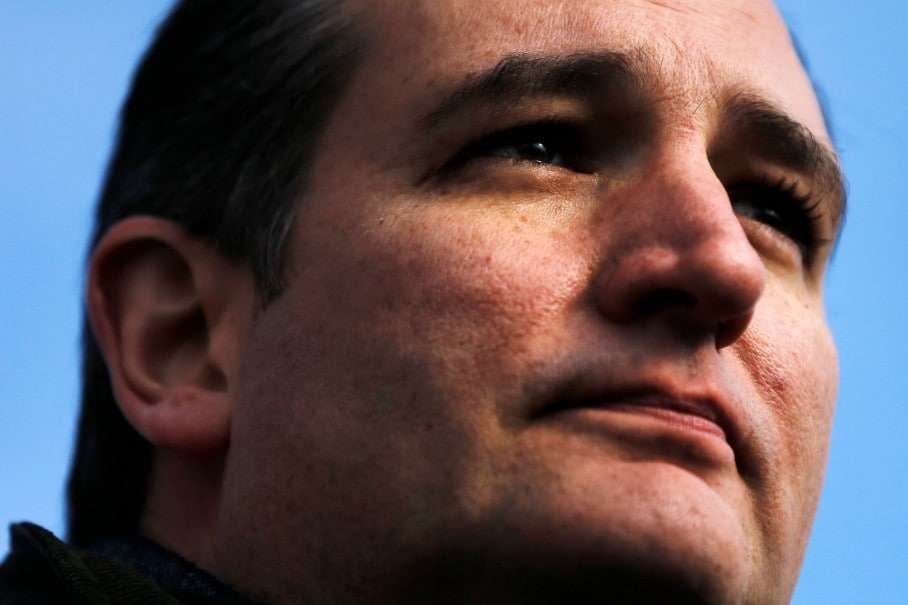The Volokh Conspiracy
Mostly law professors | Sometimes contrarian | Often libertarian | Always independent
The case for getting rid of the requirement that the president must be a "natural born citizen"

In recent weeks, much time and effort has been devoted to debating whether Ted Cruz is a "natural born citizen" eligible for the presidency. Whichever way you come down on this question of constitutional interpretation, the real lesson of this debate should be the absurdity of excluding naturalized citizens from the presidency in the first place. Categorically excluding immigrants from the presidency is a form of arbitrary discrimination based on place of birth (or, in a few cases, parentage), which is ultimately little different from discrimination on the basis of race or ethnicity. Both ethnicity and place of birth are morally arbitrary characteristics which do not, in themselves, determine a person's competence or moral fitness for high political office.
The "natural born" citizen requirement was originally inserted into the Constitution because some of the Founders feared that European royalty or nobles might move to the United States, get elected to the presidency, and then use the office to advance the interests of their houses. Whatever the merits of this concern back in the 1780s, it is hardly a plausible scenario today.
One can argue that immigrants have less knowledge of the country and its customs, and might make worse presidents for that reason. But that problem is surely addressed by the constitutional requirement that a candidate for president must have been resident in the United States for at least fourteen years. As a practical matter, anyone who attains the political connections and public recognition needed to make a serious run for the presidency is likely to have at least as much knowledge of the US and American politics as most serious native-born candidates do.
Perhaps the most obvious objection to letting immigrants ascend to the presidency is the fear that they might be less loyal than native-born citizens are. But there is no good reason to think that people who became Americans by choice are less likely to be loyal than those did so merely by accident of birth. Indeed, the reverse conjecture is at least equally plausible. Even if some immigrant groups might, on average, be less loyal than natives, the same conjecture can be made about members of some ethnic or racial groups, as compared to others. Such statistical correlations - even if valid - would not justify categorically excluding members of those groups from the presidency, and the same point applies to immigrants.
The significance of this issue should not be overstated. Only a few immigrants (myself definitely not included) have a serious desire to become president, and fewer still would have any real chance of winning. Exclusion from the presidency has little or no practical impact on the lives of the overwhelming majority of naturalized citizens. Nonetheless, categorical exclusion from eligibility for the nation's highest office is an important symbolic affront to immigrants, even those who have no desire to run for the presidency themselves. Consider, for example, how blacks, Hispanics, or Irish-Americans might feel if their group was similarly excluded.
As with any proposed constitutional amendment, this one would face an uphill battle, because of the need to achieve a supermajority of two thirds of both houses of Congress and three quarters of state legislatures. The alternative approach of relying on a convention of the states is also very difficult. However, this idea might gain bipartisan traction because both parties have had prominent candidates who might run afoul of the provision, and both might regard it as a way to increase their standing among immigrants. It would not be an easy struggle, but it might not be completely infeasible either.
Abraham Lincoln once said that "[w]hen [immigrants] look through that old Declaration of Independence, they find that those old men say that 'We hold these truths to be self-evident, that all men are created equal'; and then they feel that that moral sentiment, taught in that day, evidences their relation to those men… and that they have a right to claim it as though they were blood of the blood, and flesh of the flesh, of the men who wrote that Declaration; and so they are." That principle will only be fully realized when we abolish the discriminatory exclusion of immigrants from the nation's highest political office.
UPDATE: I should note that Harvard law professor Randall Kennedy is a longtime advocate of repealing the Natural Born Citizen Clause. For a good summary of his arguments, see this article:
Whether or not this absolute bar based on nativity made sense at the founding, it is now dangerously unfair and unwise. It stigmatizes all immigrants, expressing in the fundamental law of the United States a judgment that they are irremediably flawed, forever cast under a pall of increased suspicion, perpetually labeled as less fully American than fellow citizens who happen to have been native-born. Idolatry of place of birth is a rank superstition. Nativity indicates nothing about a person's willed attachment to a nation, a polity, or a way of life. Nativity denotes an accident of fate over which an individual has no control.


Show Comments (0)